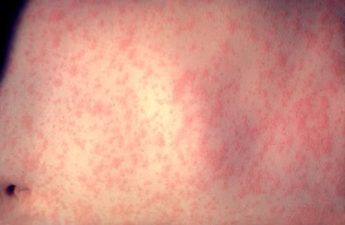
Lily Alexander, Public Health – Seattle & King County
Flu season is nearly here. To help you decide when, where, and how to get vaccinated, we compiled answers to some of the most common questions we see regarding flu vaccinations.
Who should get a flu shot?
Everyone over 6 months of age should receive a flu vaccine yearly, unless a doctor has advised otherwise.
But I’m healthy and getting the flu doesn’t seem like a big deal. Why do I need a flu shot?
No one wants to miss out on their vacation or be two weeks behind at work because of a preventable illness. So while you may be able to get through the flu, why take the risk?
During the 2017-2018 flu season, influenza vaccination prevented approximately 7 million flu illnesses, 109,000 flu hospitalizations, and 8,000 flu deaths.
Even if you’re young and healthy, the flu can lead to serious complications that require hospitalization. Getting vaccinated not only helps prevent you from getting ill, it also decreases the severity of illness if you do get the flu and helps protect those around you who cannot receive the shot because of their age or underlying conditions, such as your grandma or your neighbor’s new baby.
Can I get the flu from the flu shot?
No, flu shots do not cause the flu. This is a common concern but, thankfully, not something that happens.
Flu vaccines given via a needle are made with inactivated (killed) viruses that are not infectious or with just certain proteins from flu viruses, so they cannot cause the flu. And, the nasal spray flu vaccine is made with live viruses that are significantly weakened, so they can give protection but not cause illness.
While vaccinations cannot cause the flu, some people do experience mild side effects, including aches and a low-grade fever. However, when these side effects occur, they are generally mild and tend to last only a day or two.
When should I get a flu shot?
The CDC recommends everyone over 6 months of age receive a flu shot by the end of October. Flu activity generally picks up in the fall and it’s best to get the shot before the virus starts spreading in your community and workplace.
Children 6 months through 8 years getting vaccinated for the first time, and those who have only previously gotten one dose of vaccine, should get two doses of vaccine this season. All children who have previously gotten two doses of vaccine (at any time) only need one dose of vaccine this season. The first dose should be given as soon as vaccine becomes available.
The flu season usually peaks around February, and can last well into the spring. So, even if you miss the recommended window, it is still worth getting vaccinated later in the season.
What’s the benefit of getting a shot now?
It takes two weeks from the time you receive your flu shot to develop full immunity. The sooner you get the shot, the sooner your body can build that full immunity.
What if my kids or I hate shots?
Good news! The nasal spray flu vaccine (live attenuated influenza vaccine or LAIV) is available this season for non-pregnant individuals, ages 2 through 49 years old.
For those ages 18 to 64 years old who hate shots, the intradermal flu vaccine is another alternative. The intradermal flu vaccine uses a needle 90% smaller than your traditional shot to inject the vaccine into your skin, rather than your muscle.
For the 2019-2020 season, the CDC does not recommend any one vaccine over another. But, make sure to call ahead to your doctor or pharmacy to be certain they offer these alternatives.
Should I get a flu shot if I’m pregnant?
Yes, flu vaccines are safe for pregnant people. They help to protect both the pregnant individual and their baby from the flu.
During pregnancy, people experience changes in their immune system, heart, and lungs that make them more prone to severe illness from flu. According to the CDC, vaccination reduces this risk of serious, flu-associated respiratory infection and hospitalization in those who are pregnant. In addition, pregnant people who receive the flu vaccine are helping to protect their babies from flu illness for several months after their birth, when they are still too young to be vaccinated themselves.
What if I’m over 65 years old?
The flu can be particularly serious for people 65 and older because human immune defenses weaken with age. The flu vaccine is the best way to protect against the flu and potentially serious complications.
There are two vaccines that are specifically recommended for people who are 65 years of age or older: the “high dose” vaccine and the “adjuvanted” flu vaccine, Fluad. Both options have been found to be effective at preventing the flu and the CDC does not state a preference for one vaccine over another. The regular flu shot is also a good option if these products are not available.
Where can I get a flu shot?
You can use the online HealthMap Vaccine Finder or Public Health’s Find an Immunization Clinic page to easily find nearby pharmacy and clinic locations to get your flu shot. Remember to call ahead to ensure that the vaccine you need is currently available, especially if you are interested in the nasal spray flu vaccine or the intradermal flu vaccine.
If you still have questions about flu vaccinations or want to know more, check out our past blog post on flu vaccination effectiveness or CDC’s FAQ’s about the 2019-2020 flu season.

Flu season is nearly here. To help you decide when, where, and how to get vaccinated, we compiled answers to some of the most common questions we see regarding flu vaccinations.
Who should get a flu shot?
Everyone over 6 months of age should receive a flu vaccine yearly, unless a doctor has advised otherwise.
But I’m healthy and getting the flu doesn’t seem like a big deal. Why do I need a flu shot?
No one wants to miss out on their vacation or be two weeks behind at work because of a preventable illness. So while you may be able to get through the flu, why take the risk?
During the 2017-2018 flu season, influenza vaccination prevented approximately 7 million flu illnesses, 109,000 flu hospitalizations, and 8,000 flu deaths.
Even if you’re young and healthy, the flu can lead to serious complications that require hospitalization. Getting vaccinated not only helps prevent you from getting ill, it also decreases the severity of illness if you do get the flu and helps protect those around you who cannot receive the shot because of their age or underlying conditions, such as your grandma or your neighbor’s new baby.
Can I get the flu from the flu shot?
No, flu shots do not cause the flu. This is a common concern but, thankfully, not something that happens.
Flu vaccines given via a needle are made with inactivated (killed) viruses that are not infectious or with just certain proteins from flu viruses, so they cannot cause the flu. And, the nasal spray flu vaccine is made with live viruses that are significantly weakened, so they can give protection but not cause illness.
While vaccinations cannot cause the flu, some people do experience mild side effects, including aches and a low-grade fever. However, when these side effects occur, they are generally mild and tend to last only a day or two.
When should I get a flu shot?
The CDC recommends everyone over 6 months of age receive a flu shot by the end of October. Flu activity generally picks up in the fall and it’s best to get the shot before the virus starts spreading in your community and workplace.
Children 6 months through 8 years getting vaccinated for the first time, and those who have only previously gotten one dose of vaccine, should get two doses of vaccine this season. All children who have previously gotten two doses of vaccine (at any time) only need one dose of vaccine this season. The first dose should be given as soon as vaccine becomes available.
The flu season usually peaks around February, and can last well into the spring. So, even if you miss the recommended window, it is still worth getting vaccinated later in the season.
What’s the benefit of getting a shot now?
It takes two weeks from the time you receive your flu shot to develop full immunity. The sooner you get the shot, the sooner your body can build that full immunity.
What if my kids or I hate shots?
Good news! The nasal spray flu vaccine (live attenuated influenza vaccine or LAIV) is available this season for non-pregnant individuals, ages 2 through 49 years old.
For those ages 18 to 64 years old who hate shots, the intradermal flu vaccine is another alternative. The intradermal flu vaccine uses a needle 90% smaller than your traditional shot to inject the vaccine into your skin, rather than your muscle.
For the 2019-2020 season, the CDC does not recommend any one vaccine over another. But, make sure to call ahead to your doctor or pharmacy to be certain they offer these alternatives.
Should I get a flu shot if I’m pregnant?
Yes, flu vaccines are safe for pregnant people. They help to protect both the pregnant individual and their baby from the flu.
During pregnancy, people experience changes in their immune system, heart, and lungs that make them more prone to severe illness from flu. According to the CDC, vaccination reduces this risk of serious, flu-associated respiratory infection and hospitalization in those who are pregnant. In addition, pregnant people who receive the flu vaccine are helping to protect their babies from flu illness for several months after their birth, when they are still too young to be vaccinated themselves.
What if I’m over 65 years old?
The flu can be particularly serious for people 65 and older because human immune defenses weaken with age. The flu vaccine is the best way to protect against the flu and potentially serious complications.
There are two vaccines that are specifically recommended for people who are 65 years of age or older: the “high dose” vaccine and the “adjuvanted” flu vaccine, Fluad. Both options have been found to be effective at preventing the flu and the CDC does not state a preference for one vaccine over another. The regular flu shot is also a good option if these products are not available.
Where can I get a flu shot?
You can use the online HealthMap Vaccine Finder or Public Health’s Find an Immunization Clinic page to easily find nearby pharmacy and clinic locations to get your flu shot. Remember to call ahead to ensure that the vaccine you need is currently available, especially if you are interested in the nasal spray flu vaccine or the intradermal flu vaccine.
If you still have questions about flu vaccinations or want to know more, check out our past blog post on flu vaccination effectiveness or CDC’s FAQ’s about the 2019-2020 flu season.


